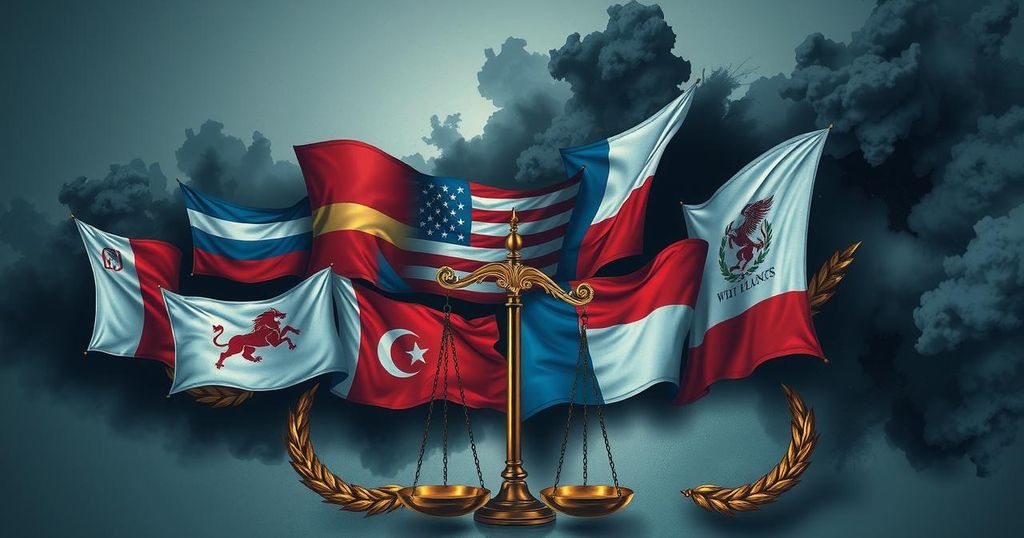UNSC sits as US strikes on Iranian nuclear sites ignite international tensions. Major players including Russia, China, and Pakistan propose a ceasefire resolution, while the US and Israel defend their actions. UN Secretary-General warns of potential escalation, underscoring the volatile nature of ongoing conflicts in the region.
Tensions mounted at the United Nations Security Council (UNSC) in the wake of US-led strikes on Iranian nuclear sites. The emergency session assembled as Iran and its allies slammed the military action, while the US and Israel defended it. The strikes have reignited calls for a ceasefire in the already volatile Middle East.
Russia, China, and Pakistan proposed a resolution calling for an “immediate and unconditional ceasefire.” Although the draft does not directly name the US or Israel, it condemns the attacks on Iranian facilities. A vote is pending, but given the need for at least nine members’ support and no vetoes from permanent members, it seems unlikely, as the US is expected to veto any measure that criticizes its own actions.
UN Secretary-General Antonio Guterres voiced his concerns, stating that the region is “on the brink of a deadly downward spiral.” He cautioned that the US strikes represent a significant escalation in an already precarious situation. “We now risk descending into a rathole of retaliation after retaliation,” Guterres warned, urging immediate action to resume negotiations regarding Iran’s nuclear program.
The US defended its actions through Acting Ambassador Dorothy Shea. She argued the strikes were crucial for dismantling Iran’s nuclear enrichment capabilities, citing the need to protect both American citizens and allies. Shea made it clear that any Iranian assault would prompt a strong response. “The time finally came for the United States, in defense of its ally and our own interests, to act decisively,” she asserted.
On the other side, Iran’s Ambassador Ali Bahreini criticized the US and Israeli attacks, framing them as politically motivated. He stated that they did not happen without a context, highlighting the destruction of diplomatic channels by the US. Bahreini reinforced that Iran would determine its own response regarding timing and scale.
Israel’s envoy to the UN, Danny Danon, painted the strikes in a positive light, asserting they have made the world safer. He dismissed calls for condemnation, suggesting that any change in Iranian government should be decided by the Iranian people themselves.
Meanwhile, in the backdrop of rising tensions, China’s Ambassador Fu Cong condemned the US military action and called for a ceasefire. “We are deeply concerned about the risk of the situation spiraling out of control,” Fu warned. Russia’s envoy Vasily Nebenzya voiced similar concerns, labeling the US strikes as reckless.
Pakistan’s Ambassador Asim Iftikhar Ahmad chimed in, calling the US bombing deeply troubling and expressing solidarity with Iran. This condemnation followed a day after Pakistan humorously suggested nominating US President Trump for the Nobel Peace Prize due to the drastic shifts in the geopolitical landscape.
The strike, marking the most significant Western military action against Iran since the 1979 revolution, caught the attention of Rafael Grossi, head of the International Atomic Energy Agency (IAEA). He reported visible damage at key sites such as Fordow and Natanz, although the full extent remains uncertain. Notably, Grossi faced criticism from Iran, which accused him of facilitating the US and Israeli attacks through his actions.
Additionally, just a day before Israel initiated the strike, the IAEA Board indicated Iran was not adhering to international nuclear safeguards, potentially increasing tensions ahead of the attacks.
The situation at the UNSC reveals the deep divides over US military actions in Iran and growing international calls for a ceasefire in the Middle East. With significant tensions involving the US, Israel, Iran, and key global players like Russia and China, the outcome of proposed resolutions remains uncertain. As condemnation and geopolitical rhetoric intensify, the risk of escalation continues to loom, evidencing a complex interplay of diplomacy and military engagements that requires urgent attention from the international community.
Original Source: www.aljazeera.com






